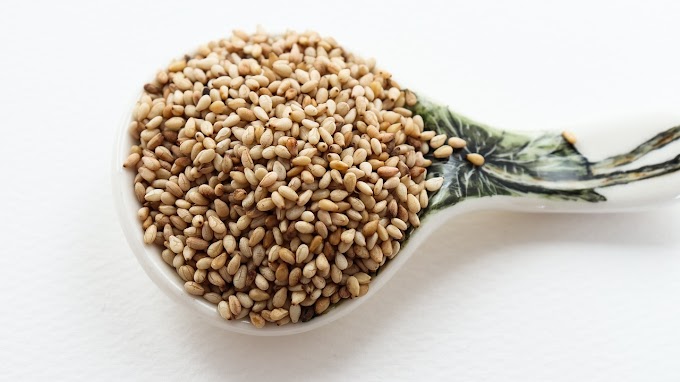Managing and Balancing Glucose Levels for Optimal Health
Introduction
Blood sugar, also called blood glucose, is a crucial component of the human body, serving as the primary source of energy for the body's cells and supporting the proper functioning of essential organs like the brain and liver. The levels of blood sugar can fluctuate throughout the day due to various factors such as diet, exercise, stress, and medication. Ensuring stable blood sugar levels is vital for overall well-being and health. This comprehensive article will delve into the intricacies of blood sugar, its regulation, and its impact on human health.

Blood Sugar
Blood sugar, as the name suggests, refers to the sugar (glucose) present in the bloodstream. Glucose is a simple sugar and is a primary source of energy for the body's cells. The body derives glucose from the food we eat, primarily from carbohydrates. When carbohydrates are consumed, they break down into glucose, which then enters the bloodstream. The pancreas, situated behind the stomach, produces a hormone called insulin that regulates blood sugar levels. Insulin enables glucose to enter the body's cells, where it is utilized for energy.
Regulation of Blood Sugar
The body employs a complex system to control blood sugar levels. When blood sugar levels are high, the pancreas releases insulin, which signals the body's cells to absorb glucose from the bloodstream. Additionally, the liver stores excess glucose in the form of glycogen. On the other hand, when blood sugar levels drop, the pancreas releases another hormone called glucagon, which instructs the liver to break down glycogen into glucose and release it into the bloodstream. This intricate mechanism ensures that the body maintains a steady supply of glucose to meet its energy needs.
Imbalances in Blood Sugar
Inadequate control of blood sugar levels can lead to various health issues. Low blood sugar (hypoglycemia) can cause symptoms such as dizziness, confusion, sweating, and fainting. Prolonged low blood sugar levels can damage the brain and other organs. High blood sugar (hyperglycemia) is a common indication of diabetes, a chronic condition that affects millions of people worldwide. If left untreated, diabetes can lead to complications such as heart disease, kidney damage, nerve damage, and blindness.
Symptoms of Blood Sugar Imbalance
Symptoms of low blood sugar (hypoglycemia) include shakiness, dizziness, confusion, sweating, hunger, and blurred vision. If left untreated, it can lead to seizures, coma, and even death. Symptoms of high blood sugar (hyperglycemia) include frequent urination, increased thirst, fatigue, blurred vision, and slow healing of wounds. If left untreated, it can lead to diabetic ketoacidosis, a life-threatening condition.
Blood Sugar Monitoring
Blood sugar levels can be measured using various methods. The most common method is a blood glucose meter, a small device that measures glucose levels in a drop of blood obtained by pricking the finger. Blood glucose meters are widely available and relatively affordable. Continuous glucose monitoring (CGM) is another method that involves wearing a sensor to track glucose levels throughout the day. CGM devices provide real-time information on glucose levels and can help individuals with diabetes manage their condition more effectively.
Maintaining Healthy Blood Sugar Levels
Maintaining healthy blood sugar levels is crucial for overall well-being and health. Consuming a healthy diet low in processed foods and added sugars can help control blood sugar levels. Regular exercise can also improve insulin sensitivity and help regulate blood sugar levels. Managing stress, getting adequate sleep, and avoiding tobacco and excessive alcohol consumption are also essential for maintaining healthy blood sugar levels.
Natural Ways to Lower Blood Sugar Levels
Elevated blood sugar levels can lead to various health issues, including diabetes, heart disease, and kidney damage. While medication is necessary to manage blood sugar levels in some cases, there are several natural ways to lower blood sugar levels. Here are some simple ways to naturally lower blood sugar:
Regular exercise: Physical activity can help lower blood sugar levels by using glucose for energy. Aim for at least 30 minutes of moderate-intensity exercise, such as brisk walking, cycling, or swimming, most days of the week.
Balanced diet: Consuming a diet high in fiber, whole grains, fruits, and vegetables and low in processed foods and added sugars can help regulate blood sugar levels. Avoid skipping meals and try to eat small, frequent meals throughout the day.
Stay hydrated: Drinking plenty of water can help flush out excess sugar from the body and keep blood sugar levels stable.
Manage stress: Chronic stress can lead to high blood sugar levels. Find ways to manage stress, such as meditation, yoga, or deep breathing exercises.
Get sufficient sleep: Lack of sleep can disrupt hormone levels, leading to higher blood sugar levels. Aim for at least 7-8 hours of sleep per night.
Try natural supplements: Certain supplements, such as cinnamon, chromium, and magnesium, have been shown to help lower blood sugar levels. However, always consult with your doctor before taking any supplements.
Monitor your blood sugar: Regularly monitoring your blood sugar levels can help you track the effectiveness of lifestyle changes and medications. Work with your healthcare provider to create a monitoring plan that works for you.
In conclusion, managing blood sugar levels is crucial for overall well-being and health. Incorporating these simple natural strategies into your daily routine can help lower blood sugar levels and reduce the risk of developing serious health issues. However, it is important to work with your healthcare provider to develop an individualized plan that meets your unique needs.
Important Reminder: Before making any significant changes to your lifestyle or healthcare routine, it is always best to consult with a certified practitioner to receive personalized guidance tailored to your unique needs.
Manage stress: Chronic stress can lead to high blood sugar levels. Find ways to manage stress, such as meditation, yoga, or deep breathing exercises.
Get sufficient sleep: Lack of sleep can disrupt hormone levels, leading to higher blood sugar levels. Aim for at least 7-8 hours of sleep per night.
Try natural supplements: Certain supplements, such as cinnamon, chromium, and magnesium, have been shown to help lower blood sugar levels. However, always consult with your doctor before taking any supplements.
Monitor your blood sugar: Regularly monitoring your blood sugar levels can help you track the effectiveness of lifestyle changes and medications. Work with your healthcare provider to create a monitoring plan that works for you.
In conclusion, managing blood sugar levels is crucial for overall well-being and health. Incorporating these simple natural strategies into your daily routine can help lower blood sugar levels and reduce the risk of developing serious health issues. However, it is important to work with your healthcare provider to develop an individualized plan that meets your unique needs.
Important Reminder: Before making any significant changes to your lifestyle or healthcare routine, it is always best to consult with a certified practitioner to receive personalized guidance tailored to your unique needs.
FAQ's
What are the common causes of high blood sugar levels?High blood sugar levels can result from various factors, including a diet high in refined sugars and carbohydrates, lack of physical activity, certain medications, stress, and certain medical conditions such as diabetes.
What are the best foods to help lower blood sugar levels naturally?
What are the best foods to help lower blood sugar levels naturally?
Foods that can help lower blood sugar levels naturally include high-fiber foods such as whole grains, legumes, fruits, and vegetables. Additionally, foods rich in healthy fats and lean protein can also contribute to stabilizing blood sugar levels.
How often should I check my blood sugar levels?
How often should I check my blood sugar levels?
The frequency of blood sugar level checks may vary depending on individual health conditions and the recommendation of a healthcare provider. Individuals with diabetes may need to check their blood sugar levels multiple times a day, especially before and after meals, as well as before bedtime.
Can stress affect blood sugar levels?
Can stress affect blood sugar levels?
Yes, stress can have a significant impact on blood sugar levels. During stressful situations, the body releases hormones that can cause blood sugar levels to rise. Therefore, managing stress through relaxation techniques, exercise, and adequate rest is essential for maintaining stable blood sugar levels.
What are the warning signs of a blood sugar imbalance?
What are the warning signs of a blood sugar imbalance?
Some warning signs of blood sugar imbalance include frequent urination, increased thirst, fatigue, blurred vision, excessive hunger, and slow wound healing. It is crucial to pay attention to these symptoms and consult a healthcare professional if they persist or worsen.
Are there any specific lifestyle changes I can make to help manage my blood sugar levels?
Are there any specific lifestyle changes I can make to help manage my blood sugar levels?
Yes, certain lifestyle changes can play a significant role in managing blood sugar levels. These changes include following a balanced diet, engaging in regular physical activity, maintaining a healthy weight, managing stress levels, getting adequate sleep, and avoiding unhealthy habits such as smoking and excessive alcohol consumption.
Can natural supplements help regulate blood sugar levels?
Can natural supplements help regulate blood sugar levels?
Some natural supplements, such as cinnamon, chromium, and magnesium, have shown potential in helping to regulate blood sugar levels. However, it is essential to consult with a healthcare provider before incorporating any supplements into your routine, as they may interact with medications or have adverse effects.
Remember, always consult with a healthcare provider or a certified healthcare professional for personalized advice and guidance on managing your blood sugar levels and overall health.
Remember, always consult with a healthcare provider or a certified healthcare professional for personalized advice and guidance on managing your blood sugar levels and overall health.







